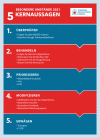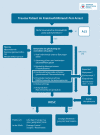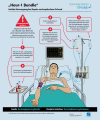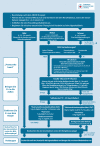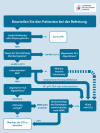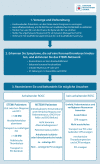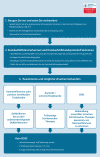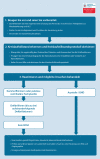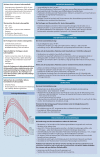[Cardiac arrest under special circumstances]
- PMID: 34127910
- PMCID: PMC8190767
- DOI: 10.1007/s10049-021-00891-z
[Cardiac arrest under special circumstances]
Abstract
These guidelines of the European Resuscitation Council (ERC) Cardiac Arrest under Special Circumstances are based on the 2020 International Consensus on Cardiopulmonary Resuscitation Science with Treatment Recommendations. This section provides guidelines on the modifications required for basic and advanced life support for the prevention and treatment of cardiac arrest under special circumstances; in particular, specific causes (hypoxia, trauma, anaphylaxis, sepsis, hypo-/hyperkalaemia and other electrolyte disorders, hypothermia, avalanche, hyperthermia and malignant hyperthermia, pulmonary embolism, coronary thrombosis, cardiac tamponade, tension pneumothorax, toxic agents), specific settings (operating room, cardiac surgery, cardiac catheterization laboratory, dialysis unit, dental clinics, transportation [in-flight, cruise ships], sport, drowning, mass casualty incidents), and specific patient groups (asthma and chronic obstructive pulmonary disease, neurological disease, morbid obesity, pregnancy).
Diese Leitlinien des European Resuscitation Council (ERC) für den Kreislaufstillstand unter besonderen Umständen basieren auf dem 2020 International Consensus on Cardiopulmonary Resuscitation Science with Treatment Recommendations. Dieses Kapitel enthält Leitlinien zu den Modifikationen der lebensrettenden Basismaßnahmen und erweiterten lebensrettenden Maßnahmen zur Vorbeugung und Behandlung von Kreislaufstillständen unter besonderen Umständen; insbesondere spezielle Ursachen (Hypoxie, Trauma, Anaphylaxie, Sepsis, Hypo‑/Hyperkaliämie und andere Elektrolytstörungen, Hypothermie, Lawinengeschehen, Hyperthermie und maligne Hyperthermie, Lungenembolie, Koronarthrombose, Herzbeuteltamponade, Spannungspneumothorax, Giftstoffe), spezielle Umstände (Operationssaal, Herzchirurgie, Herzkatheterlabor, Dialyseeinheit, Zahnkliniken, Transport während des Flugs, Kreuzfahrtschiffe, Sport, Ertrinken, Großschadensereignisse) und spezielle Patientengruppen (Asthma und chronisch obstruktive Lungenerkrankung, neurologische Erkrankungen, krankhafte Adipositas, Schwangerschaft).
Zusatzmaterial online: Die Online-Version dieses Beitrags (10.1007/s10049-021-00891-z) enthält das originale Zusatzmaterial aus dem Artikel in Resuscitation.
Beitrag und Zusatzmaterial stehen Ihnen auf
Keywords: Modifications of life support; Reversible causes; Special causes; Special patient groups; Special settings.
© European Resuscitation Council (ERC), German Resuscitation Council (GRC), Austrian Resuscitation Council (ARC) 2021.
References
Publication types
LinkOut - more resources
Full Text Sources

